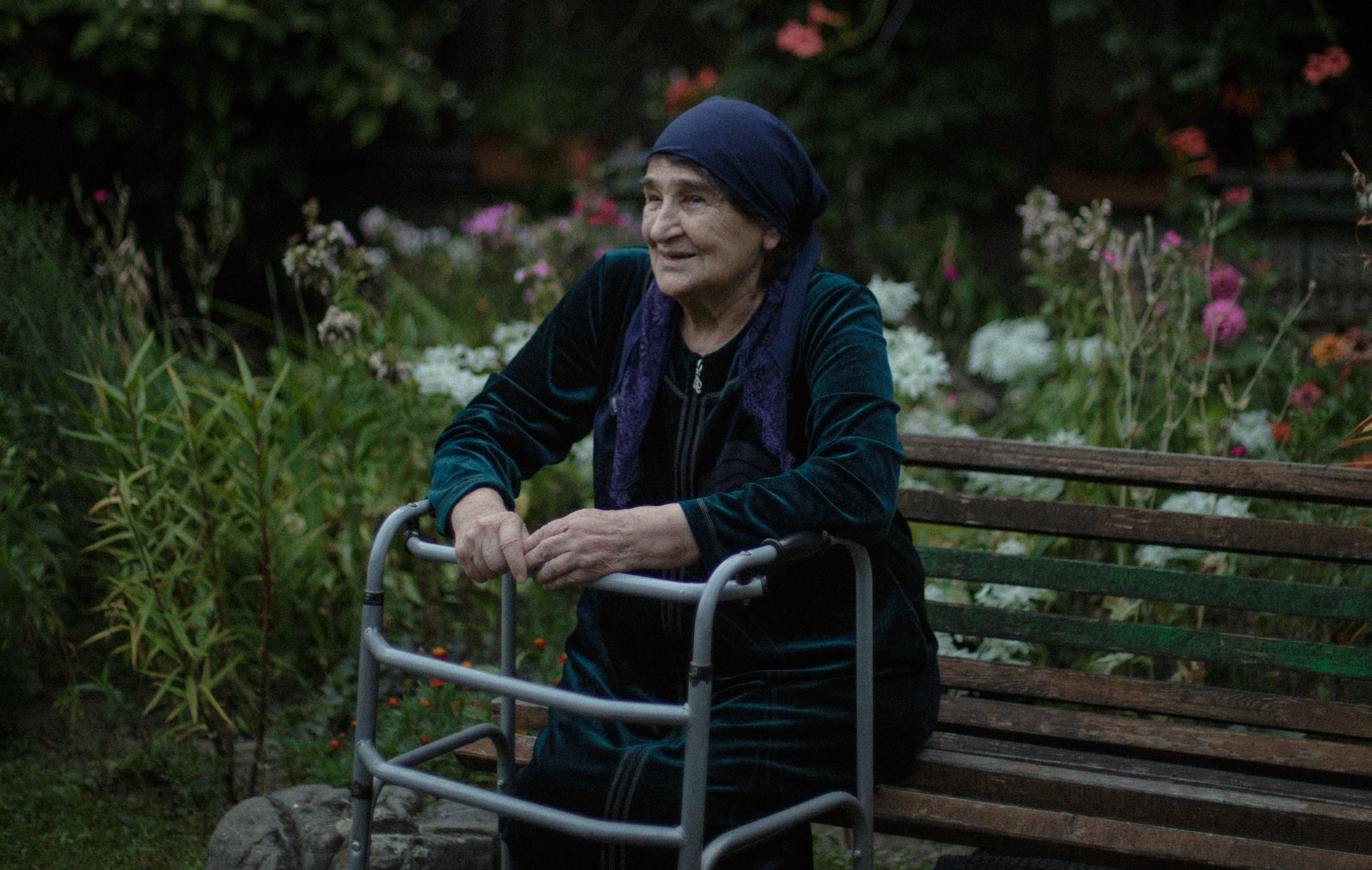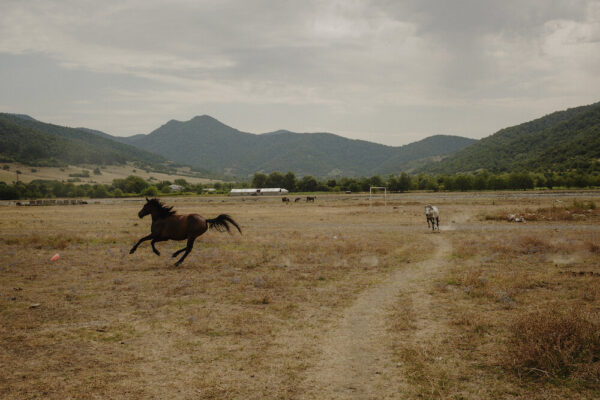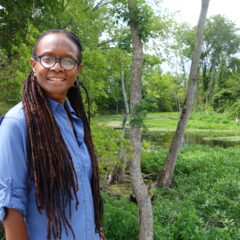This story was originally published by Religion Unplugged, with the support of CRCC’s global project on engaged spirituality.
PANKISI, Georgia— Off the beaten path and between the thickly forested Caucacus mountains bordering Russia and the fertile wine-producing lowland of Georgia is an emerging trail for backpackers and tourists to the world’s second-oldest Christian country.
This mountainous green landscape of the Pankisi valley on the eastern fringe of Georgia is home to about 6,000 Kists, an ethnic Muslim group that migrated across the mountain range two centuries ago and is now scattered in six villages built along the banks of the river Alazani.
While Kists share many cultural features with their Georgian Orthodox Christian neighbors, they remain distinct in their religious beliefs. Like the closely related Chechens who live up north in the Russian Federation, they are followers of Sunni Islam and recently attracted media attention for birthing one of the Islamic State’s top commanders.
After more than two decades struggling with a post-Soviet economic recession, destabilization brought on by the Chechen independence movement, the Second Chechen War and several anti-terrorist operations, the region is rebuilding its reputation and attracting tourists — enough to secure a coveted spot in the world’s most popular guidebook, “Lonely Planet,” in 2020.
Nazy Dakishvili, a 34-year-old Kist, called “Lonely Planet’s” inclusion of the Pankisi Valley a landmark moment and the fruit of her and others’ hard work promoting the region.
“The process was constant emailing and trying to convince them to come to Pankisi,” she told ReligionUnplugged.com.
Dakishvili runs a guest house located in the small village of Jokolo, and she knows well that making outsiders travel to her valley is not always an easy task. Like several other Western governments, the website of the U.S. Department of State cautions Americans against traveling there due to the “current security environment and the potential for civil unrest.”
Even when visitors choose to come, they might yet be dissuaded by their Georgian host or taxi driver.
“Once, the car of our guests from Ukraine stopped when entering the valley. We thought it broke down, but when we called the rental company, it appeared that Pankisi was in a red zone and that this was the reason behind the incident,” said Khatuna Margoshvili, 35, who runs another guest house with a lush garden in Duisi, the largest Kist village and the first one on the only road coming from Akhmeta, the district’s administrative center.
How Pankisi became “the other”
Before the ‘90s, the Pankisi valley wasn’t stained with the reputation of being a dangerous no-go zone. But during the first years of the Second Chechen War (1999-2009), Chechen civilians and militants who fled the conflict in Russia took refuge in the Kist villages, aggravating an already-difficult economic and social environment. In post-Soviet Georgia, poverty, corruption and crime were widespread, and rural territories like Pankisi suffered even more from state neglect.
Then Moscow accused Tbilisi, Georgia’s capital, of turning a blind eye to the presence of Islamic fighters in the valley and increased pressure on its southern neighbor. After 9/11, the global War on Terror pushed the Pankisi valley even further into the spotlight. Western media reframed the Chechens’ struggle for independence from Russia as terrorism, which had dire local repercussions for the Kists.
“The Pankisi population became the ‘other’ against which post-Soviet Georgia defined its role on the international arena,” wrote researchers Maia Barkaia and Barbare Janelidze in a report published in 2018 by the Human Rights Education and Monitoring Center.
Dakishvili said she witnessed year after year the perpetuation of negative stereotypes about the Pankisi and Kist people. Foreign and Georgian journalists would come looking for sensationalist headlines and repeat the same narratives on terrorism, radicalization and criminality.
“The main problem was we did not have a voice,” Dakishvili said.
The women opening guest houses in Pankisi
The media coverage she felt was unfair triggered the young woman to establish a guest house in her native village in 2012, around the time when the Pankisi was once again making international headlines for being the birthplace of one of the top ISIS military leaders fighting in Syria. She moved back there from Tbilisi, where she had studied law and worked for the City Hall.
“I made this decision because even my university friends were telling me not to go to Pankisi,” Dakishvili said. “I realized we had to do something to change the reputation and that the best way would be by bringing people here for them to see the reality and the true story.”
In that first year, she hosted 65 guests. In 2019, she hosted more than 1,000. After a 2020 season marked by the COVID-19 pandemic, tourists have been coming again since the spring of 2021. She accommodates them in her large family house that was built in 1948 but has been meticulously renovated. To provide shelter from the summer heat, a huge vine trellis covers the garden in front of a typical facade made of wood-framed, vertical windows.
There are eight other guest houses run by women in the valley.
“It’s the fourth season since I started,” said Elza Tsikhesashvili, 50, who runs a guest house in Dumasturi, a small village on the eastern bank of the Alazani river connected to Jokolo by a long wooden bridge.
“I was helped at the beginning by a small grant from the government to buy furniture. I hosted tourists from the USA, Indonesia, Japan, Poland and various Arab countries. I also think it’s important to show our traditions, such as hospitality, in order to counter the bad image of Pankisi.”
From her garden, the view of the mountains is striking. A hammock hangs between two trees, and behind it is parked a trailer with many beehives placed on it. In addition to honey, Tsikhesashvili also produces cheese and grows corn and all types of vegetables.
“I don’t use any kind of pesticide,” she said with pride.
In Pankisi, eating homemade meals prepared from local products is part of the experience. Menus combine traditional Georgian and Chechen recipes, such as the meaty and juicy dumpling called khinkali.
Hosts usually put tourists in contact with local guides who provide horse, bike or walking tours.
“With clients, I go to the café in Duisi, visit the church, the non-alcoholic beer factory, the old mosque and the folk museum, where you can see ancient jewelry, clothes [and] carpets,” said 19-year-old Lalita, who has guided tourists for the past two years.
“Attending the women zikr ceremony [a traditional Sufi ritual that can lead to trances] is also fascinating!”
Must-sees for outdoor lovers are the Khodori waterfall and the trails of the Batsara nature reserve.
“With horses, we can organize tours going to the nearby mountainous regions of Pshavi and Tusheti with overnight camping,” said horse guide Avto Borchashvili.
Tusheti is known as a hidden gem of the Caucasus with high altitude stone villages and untouched wilderness that are only accessible during summer months.
The first Pankisi guesthouse was opened around 20 years ago by Makvala Margoshvili (left), a former nurse and member of a Sufi order who in 1999 created an organization called “Marshua Kavkas” (which means “peace in the Caucasus” in the Chechen language). During the height of the Chechen conflict, she was the first to see the potential of the valley and envision community tourism as a way to counter prejudices and develop much needed economic activity.

Makvala Margoshvili opened the first guesthouse in the Pankisi Valley
“Local people would laugh at her idea,” recalled Duisi resident Eter Tsikhesashvili.
“All the visitors who passed by in the village would be sent to her house, she would welcome them with a big smile, and it was always a drama when they left because she would not let them pay anything!”
Born in 1937, Margoshvili — also known as “Badi” — passed away in May, but her legacy lives on in the work of Dakishvili and the new organization she founded in 2018. Named the Pankisi Valley Tourism and Development Association, the nonprofit unites guest house owners, guides and local cheese and honey producers.
“Tourism is the only viable industry because we don’t have huge lands for agriculture,” Dakishvili said.
“However, we are not just focusing on tourism. It’s a whole community development project. There is a high level of unemployment and a lack of opportunities in the Pankisi valley. Young people especially don’t see their future here. But this is changing.”
Between 2014 and 2016, Khatuna Margoshvili (no relation to Makvala) and her husband worked in Denmark. During their stay they were able to save up $25,000 dollars, which helped them renovate and extend their house to host visitors.
“It was a good choice to get involved in tourism,” Margoshvili said.
“I was trained as a nurse. The salaries are very low and you have to do night shifts. Now I can work while taking care of my children. In 2019, I had 12,000 GEL [around $4,000, which is 50% above the average earnings in the Kakheti region] as a yearly revenue from the guest house.”
As the reputation of the Pankisi valley as a dangerous place slowly fades and international tourism resumes globally, upcoming years might see a continuation of the increase of international visitors coming to the region.
“I see more and more people involved in tourism,” Dakishvili said, “but I want to avoid mass tourism. I don’t want our traditions to change because of tourism.”
One such tradition is the aforementioned zikr ceremony held every Friday in a small praying room next to the old mosque of Duisi. Overtourism could endanger the authenticity of this ritual, which lasts for about an hour and gathers dozens of elderly women.
“During the zikr, I am no longer of this world. I am transcended. My mind is elsewhere,” said Raisa Margoshvili, 63, one of the youngest participants who is also the lead singer during the ceremony.
IF YOU GO
The closest international airport is in Tbilisi. The Pankisi valley is located 90 miles away from the Georgian capital. Drivers have to cross the Gombori pass to reach Telavi, Kakheti’s main city, and then head north toward the city of Akhmeta.
Visitors can either rent a car in Tbilisi, hire a taxi (the price is 60 GEL, or around $20, each way) or travel on the minibuses departing each day from the Ortachala bus station.
More details regarding transportation on the Nazy guesthouse website.
The Pankisi valley can easily be integrated into a tour of the Kakheti region. The main regional attractions are the Telavi market and fortress, Tsinandali palace, Sighnaghi village, Alaverdi and Gremi monasteries and local wineries.
WHERE TO STAY
I have had good experiences at these two guesthouses. Both are calm, have wifi and provide delicious meals.
1. Melisa Guest house
Duisi village,
street 13, N°9.
https://guesthousemelissa.ge/?lang=2
+995 598184700
melissaguesthouse10@gmail.com
Around $15 per night per person (excluding meals)
2. Nazy Guest house
Jokolo village,
house 26
+995 599 14 52 09
nazysguesthouse@gmail.com
Around $15 per night per person (excluding meals)
Read the story and see more pictures on Religion Unplugged.
Clément Girardot is a journalist fellow with the Spiritual Exemplars Project.
Julien Pebrel is a journalist fellow with the Spiritual Exemplars Project.








